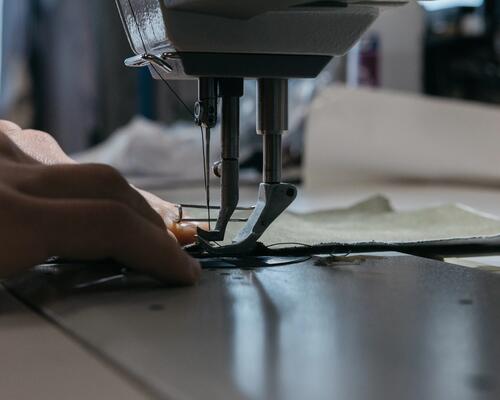
Measuring worker satisfaction
Since 2021, and as part of the Worker Voice project, DECATHLON has rolled out a survey tool that measures worker satisfaction and well-being based on the Engagement and Wellbeing (EWB) survey that was originally developed by Nike® and that is used by several companies in the textile sector. This survey guarantees confidentiality and simple digital access for respondents. It is deployed in collaboration with external partners.
This tool, in line with the Human Rights Policy, aims to empower suppliers to commit to their workers. The actions taken on the basis of the survey results make it possible to promote and work towards respecting the right of expression and the right to decent working conditions.
The EWB survey addresses six workplace well-being themes: communication, pay, work-related stress, social relations, skills development and health/safety (including harassment). The 20 questions asked of factory workers enable each site to identify areas for improvement to create a better working environment.
The results can be analysed by demographic group, such as gender, tenure or job role, to set out measures adapted to each individual.
In 2024, 122 sites from 13 countries conducted an Engagement and Wellbeing Survey (68 sites in 11 countries in 2023). Over 91,000 workers responded this year (62,000 in 2023) for an average participation rate of 70% for all sites concerned (73% in 2023).
2024 results by theme:
- Highest scores: “Employees have friends at work”,
“Supervisors discuss safety daily”, “Employees are rarely sick”
- Lowest scores: “Supervisors help with challenges at work”, “Employees consider their wages competitive”, “Employees are able to meet their family’s financial needs”
Production sites are encouraged to devise an action plan for each of the three questions having the lowest scores.
Since its establishment, the EWB has improved the measurement of, and the fight against, sexual harassment at several production sites. This has led to the creation of action plans in Mainland China, Vietnam, Bangladesh and India, and partnerships with external organisations.



